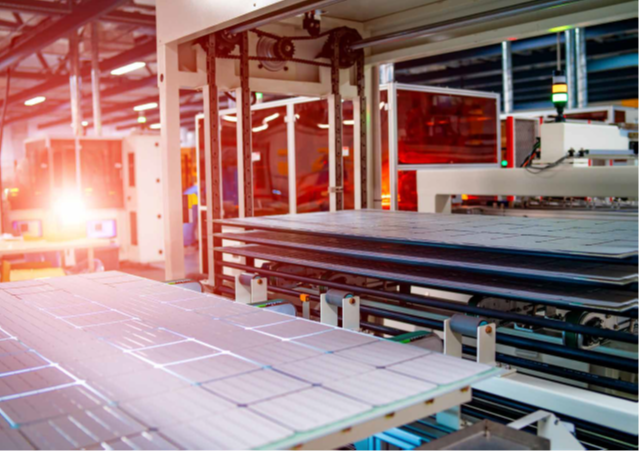
The automated manufacturing high-tech solar panel components in China
The installation and use of an estimated three billion solar photovoltaic (PV) solar panels worldwide in the last two decades have been hailed as a resounding environmental victory over polluting, non-renewable energy sources such as coal, gas and oil.
Here’s the but…
The recycling of a steadily growing volume of ageing panels appears to have caught regulators and the formal recycling industry in many countries on the back foot. End-of- life solar panels, installed up to 20 years ago and more – with a primary motivation being to address environmental concerns – are being discarded in landfill sites because few effective recycling plants have been set up yet. It’s become increasingly apparent that scant forethought has been paid to the creation of effective avenues to deal with the effective recycling of solar panels. The kneejerk reaction in various countries has been to introduce bans on dumping panels in landfill sites because of the environmental hazards, but such action does nothing to address the real issue.
Growth of solar panel market
The solar PV industry is experiencing terrific growth internationally, led by China and the United States with countries in Europe and the British Isles in the vanguard.


Dr Rong Deng Ute Collier
Dr Rong Deng, a solar panel recycling expert at the University of New South Wales in Australia, says there could be as many as 2.5 billion solar panels worldwide if one includes rooftop installations and solar farms. Energy experts are calling for urgent government action to prevent a looming global environmental disaster.
“It’s going to be a waste mountain by 2050 unless we get recycling chains going now,” says Ute Collier, Deputy Director (Knowledge, Policy and Finance Centre) at the International Renewable Energy Agency (IRENA). “We’re producing more and more solar panels but how are we going to recycle them?”
Experts agree that the paucity of facilities for recycling solar panels is a direct result of the low volume of such waste until recently. The first generation of domestic solar panels is only now coming to the end of its usable life.
South Africa’s expanding solar panel market
Closer to home, affluent South Africans are installing solar PV in numbers as Eskom’s ailing coal-fired power stations and increasingly fragile infrastructure result in power cuts of up to 12 hours a day.
Real Estate Investment Trusts (REITs) continue to pump millions of rand into solar power solutions as the government bumps heads with environmental activists over the use of power ships, exploitation of offshore gas and shale gas fields, and the possible development of a second nuclear energy plant.

Rooftop solar installation
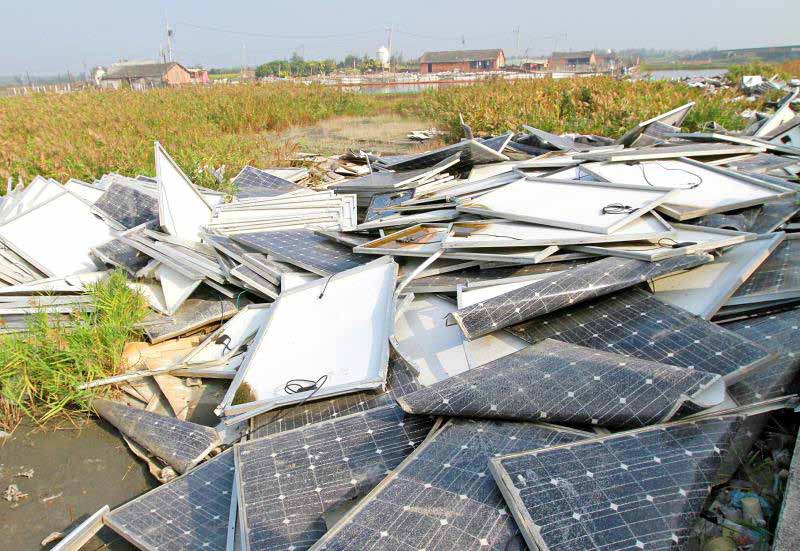
Millions of tonnes of toxic solar panels are dumped every year.
Stellenbosch Business School’s Institute for Futures Research (IFR) researcher, Francois Pretorius, indicates that there is a dearth of recycling plants in South Africa capable of handling the millions of solar panels that, within a relatively short period, will no longer be fit for purpose.
“The panels contain toxic substances such as lead, cadmium and other harmful chemicals that are leached into the environment when disposed of in a noncontrolled manner,” he remarks.
Recycling an e-pollution crisis
Among the conundrums facing regulators is who should take overall responsibility for ensuring solar panels are recycled in an acceptable environmental manner.
Circular Energy, a registered not-for-profit producer responsibility organisation (PRO) based in KwaZulu-Natal, places the major burden of responsibility on solar panel producers, importers and brand owners.

Patricia Schröder
Patricia Schröder, spokesperson for Circular Energy, says they “are held accountable for the entire lifecycle of the products they place on the market, from conception to post-consumer waste disposal, under the Extended Producer Responsibility (EPR) regulations that came into effect in May 2021.”
Schröder doesn’t let consumers off the hook. “If South Africa hopes to make a meaningful and sustainable shift to renewable energy, we must involve everyone across the energy value chain. This includes consumers.”
She says consumers can help to ensure that solar panels do not end up having a detrimental impact on the environment by enquiring about and taking part in the recycling programmes offered by producers.
“Given that e-waste includes toxic substances, its effective material recovery and environmentally sound recycling are crucial.”
Call for legislation to promote effective recycling
The first generation of domestic solar panels is only now coming to the end of its usable life. With those units now approaching retirement, experts say
urgent action is needed.
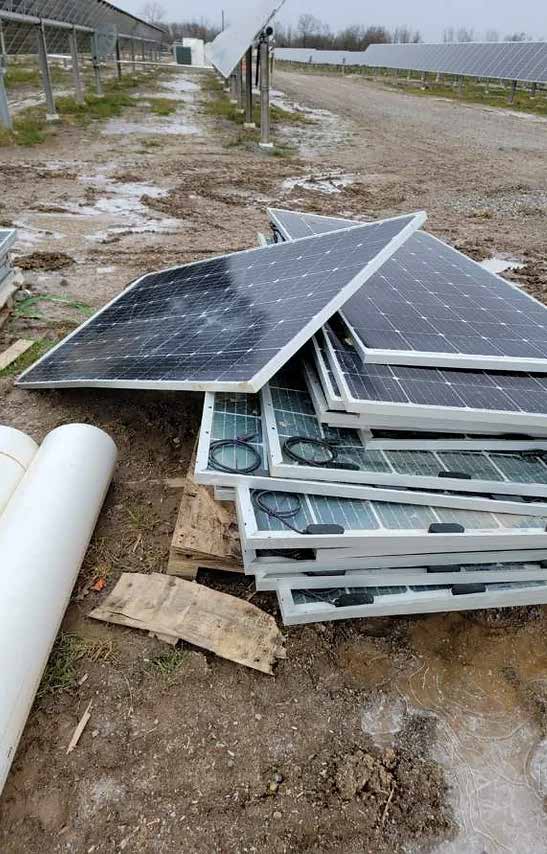
Companies need to start implementing recycling and refurbishing measures.


Professor Peter Majewski Nicolas Defrenne
Professor Peter Majewski, a researcher at the University of South Australia, says in a study published in March this year in the AIMS Energy Open Access journal, that end-of-life legislation will need to address existing and new panels.
“Landfill bans are a powerful tool but require legislation that ensures waste is not just diverted to other locations with less stringent regulations.
“Several European nations have legislation in place for electric car manufacturers to ensure materials can be recycled at the end of their life. Something similar could be legislated for solar panels.”
He also says that incentives are needed for producers to design solar panels that can be more easily recycled if they are damaged or out of warranty. In addition, he proposes a comprehensive product stewardship scheme for solar panels, a concept that was prioritised by Australia’s Federal Government several years ago.
“Serial numbers that can track a history of solar panels could also monitor their recycling use and ensure they are disposed of in an environmentally friendly way.”
He suggests that a levy on the panels may be needed to help finance an end-of-life scheme.
Europe’s first plant
Europe’s first industrial-scale solar panel recycling plant was officially inaugurated by ROSI in Grenoble, France, on June 20. The company says that the plant “is the first in a network of high-purity, photovoltaic panels recycling centres in Europe.”
Nicolas Defrenne of Soren, a company that works with ROSI to decommission solar panels, says: “As well as recycling the glass fronts and aluminium frames, the new factory can recover nearly all of the precious materials contained within the panels, such as silver and copper, which are typically some of the hardest materials to extract. These rare materials can subsequently be recycled and reused to make new, more powerful, solar units.”
Another primary material used in solar cells is silicon, the second most abundant material on Earth after oxygen and the most common conductor used in computer chips.
Over 60% of the value of a solar panel is contained in 3% by weight of the panel.
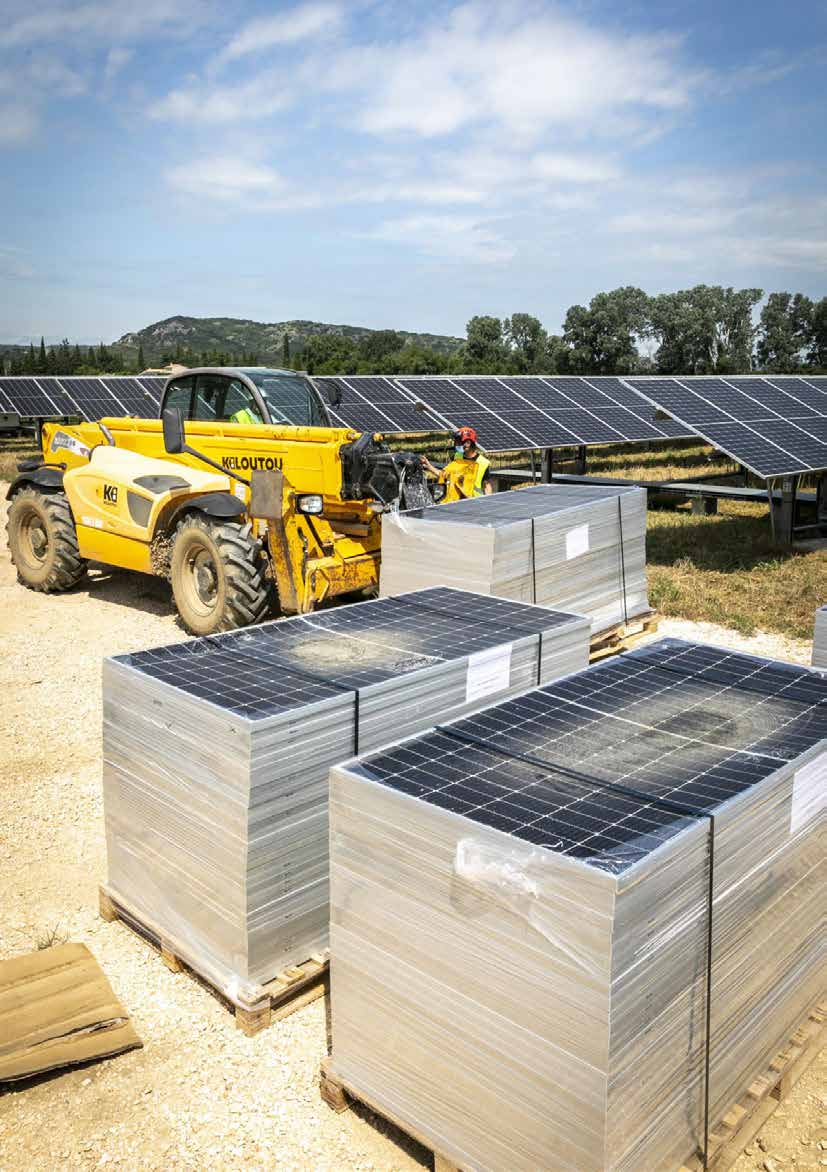
French start-up ROSI has set up a factory in Grenoble for the recycling of end-of-life photovoltaic modules.
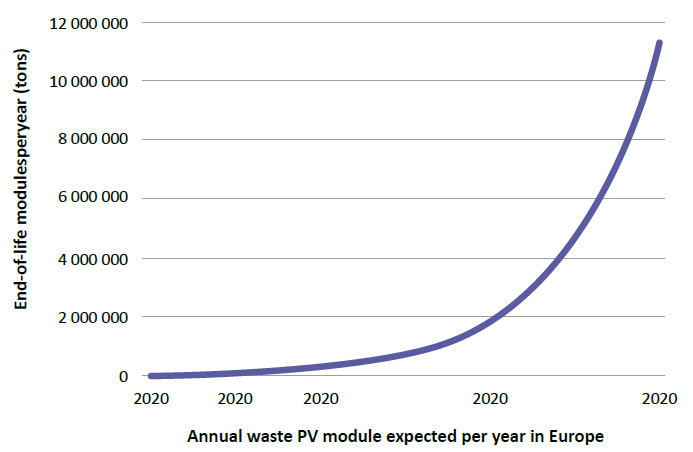
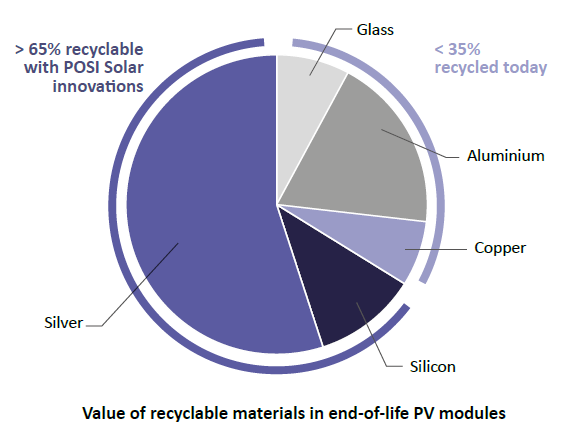
Recycling challenges
Conventional methods of recycling solar panels focus on recovering most of the aluminium and glass. But ROSI says the glass, in particular, is of relatively low quality. It cannot be used in the production of new solar panels. The recovered glass can be used either to create tiles, for use in sandblasting or mixed with other materials to make asphalt.
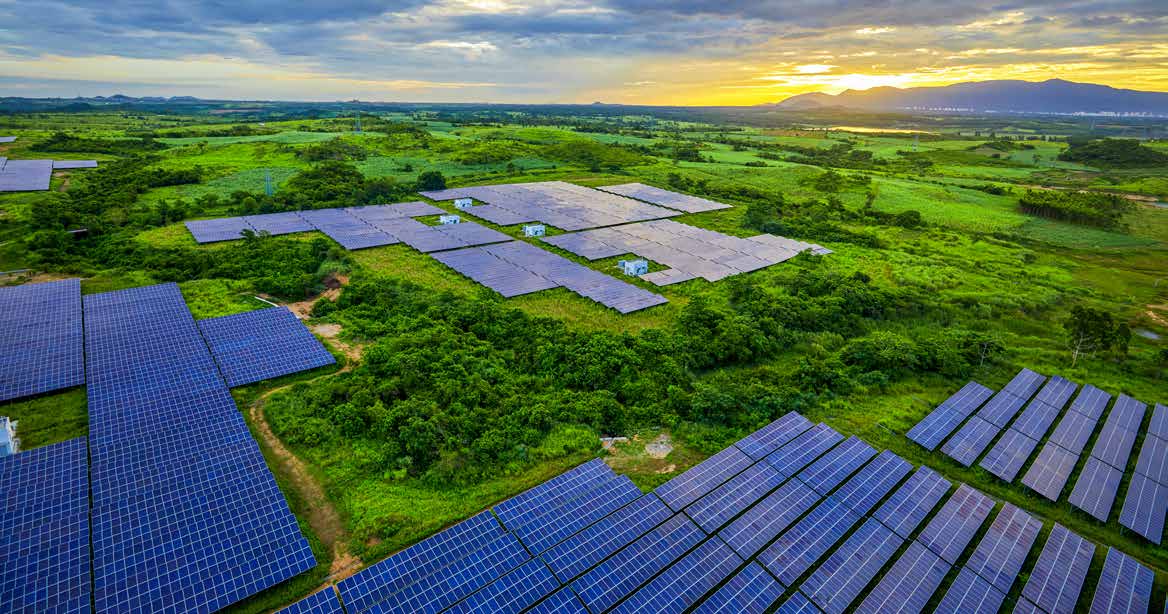
Solar Farm
Photovoltaic modules recycling
The photovoltaic industry is still in a ramp-up phase. A key stage of the lifecycle of photovoltaic panels is still not managed properly: the end-of-life of the modules. Photovoltaic modules have a lifespan of 20 to 25 years. The volume of panels reaching their end-of-life in the coming years will witness an exponential growth following the photovoltaic capacity installations of the past two decades.
Currently, end-of-life photovoltaic panels are collected in Europe through a scheme financed by panel manufacturers and importers. In a few countries, pilot recycling lines have been installed but they merely recover the aluminum frame, the junction box containing copper, and potentially the front glass panel. No recycling line is currently able to properly recover the materials encapsulated in the modules. The major technical challenge is to separate properly those materials that have a high purity and a resale value able to finance the recycling activity.
By Blake Wilkins

Source: Asset Magazine
Still looking for your dream home, or wanting to sell? Feel free to give one of our developers a call today.
Tom Eastwick – The Gates, Hilton and Garlington, Hilton | 072 297 2699 | tom@devdirect.co.za
Janet Channing – Waterford Residential Estate, Howick | 082 570 5834 | janet@devdirect.co.za